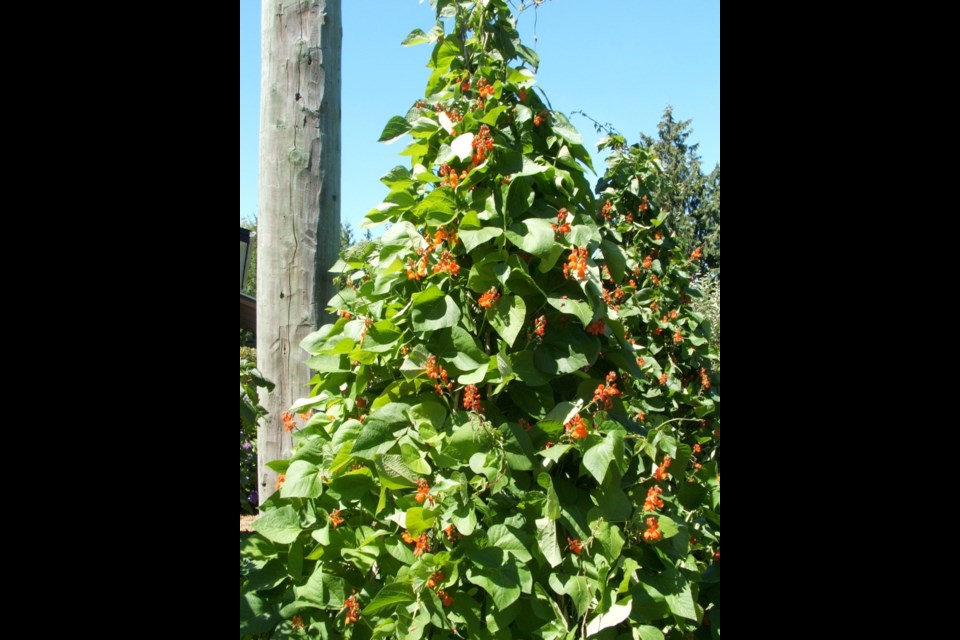Opportunities to experiment present themselves from time to time, and plunging into the relative unknown can be an interesting and useful gardening exercise.
I was enticed into experimenting with the cultivation of daikon radishes through the misfortunes of a friend who was investigating dietary means of a return to health. Over the years, since then, I return to growing them whenever a particular listing in a seed catalogue attracts my attention.
This year, I hit the daikon jackpot with a variety called Alpine in the Johnny’s Selected Seeds catalogue, which has two pages of radishes. One page lists only specialty and daikon radishes.
Most daikons are long, white Asian radishes best suited for summer sowing and harvesting in fall and winter. The name is derived from the Japanese for “big root.”
In July, I seeded Alpine into a plot with bok choy and carrots. The Alpine seeds germinated amazingly well and by early autumn had produced thick, 15-cm long roots, white with green shoulders. The roots are shorter than most daikons, which makes Alpine a good choice for shallow and rocky soils.
Encouraged by the easy success with this radish, I plan to try another Johnny’s variety called KN-Bravo, a daikon the same length as Alpine but with a flesh colour ranging from pale purple to white with purple streaks.
I’ve been sharing the prolific Alpine crop with friends. Daphne, a longtime gardening companion, makes a salad with grated daikon, carrot, beet and apple in a lemon juice and olive oil dressing. My favourite use, so far, is the combination of grated carrot and daikon in the same dressing, with a few currants added.
I ventured into daikon growing through my friend Gerry, who for many years hosted a weekend farmers’ market on her property in a nearby community.
When Gerry became ill, one of her sons did some research and came up with a diet he felt might help her. it was a macrobiotic diet that included grated daikon among its recommended health-enhancing foods. Daikon is said to have anti-inflammatory effects.
In empathy with Gerry’s struggles, I read about the diet and tried some of its recommendations. Since daikons are not commonly available in stores, I started growing them. I still have a booklet on macrobiotic dietary recommendations. In one of its grated daikon recipes it suggests adding a small amount of freshly grated ginger root.
Worth a try
It was a reader’s email that sparked thoughts of trying out the new and different in our gardens. Earlier this month Vivian wrote about an impromptu planting: “When I was removing our spent pea vines in August, I noticed a few dried pods on the plants. I couldn’t resist planting the matured peas inside the pods. They germinated, grew, and have produced pods.”
Vivian also had two extra-early scarlet runner plants in her garden this year: “One grew from a seed that was left in the ground from last year. The other grew from a previous year’s plant that I had cut off at about 10 cm above ground level. It was in a very sheltered spot. I’ll be trying to repeat this.”
Theoretically, scarlet runner roots are perennial. Depending on the variety, the winter weather, and the nature of the site, they can overwinter to regrow in the spring. A worthwhile experiment would be to mulch over the roots with leaves and soil as the weather turns cold.
GARDEN EVENTS
Plant profiling. The next session in the Plant Identification and Culture series at the Horticulture Centre of the Pacific, 505 Quayle Rd. in Saanich, will be on Saturday, Dec. 7, 1 to 4 p.m. This is an ongoing, monthly course that can be joined at any time. In each session Diane Pierce introduces 25 new plants, with descriptions, preferred growing conditions, landscape uses and maintenance. Cost to HCP members per session is $35, others $45. Cost for 12 sessions: members $350, others $450. To register call 250-479-6162.
Holiday table arrangements. Russell Nursery, 1370 Wain Rd. in North Saanich, is offering classes on Table Arrangements on Sunday, Dec. 15, at 1 p.m. and Monday, Dec. 16, at 10 a.m. Create a seasonal arrangement for your mantle, hall table or dining room. Cost is $50 plus GST. Register by email at [email protected] or by phone at 250-656-0384. Please provide your phone number when registering. For spaces still available in the Wreath Making classes, visit russellnursery.com/classes.



